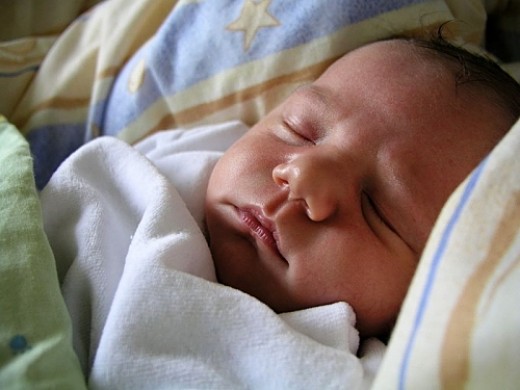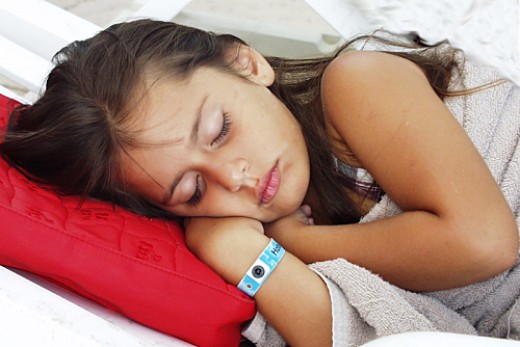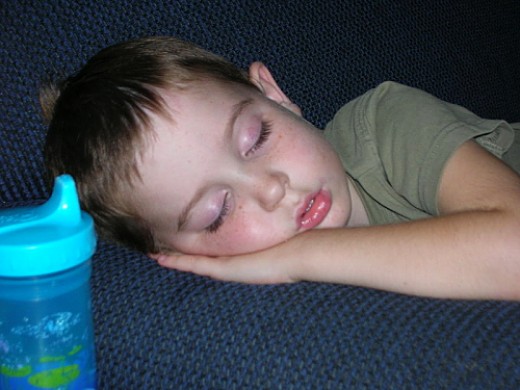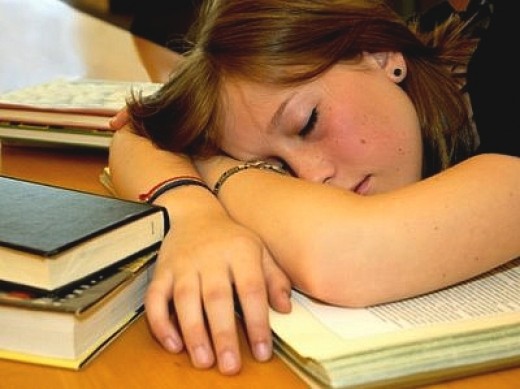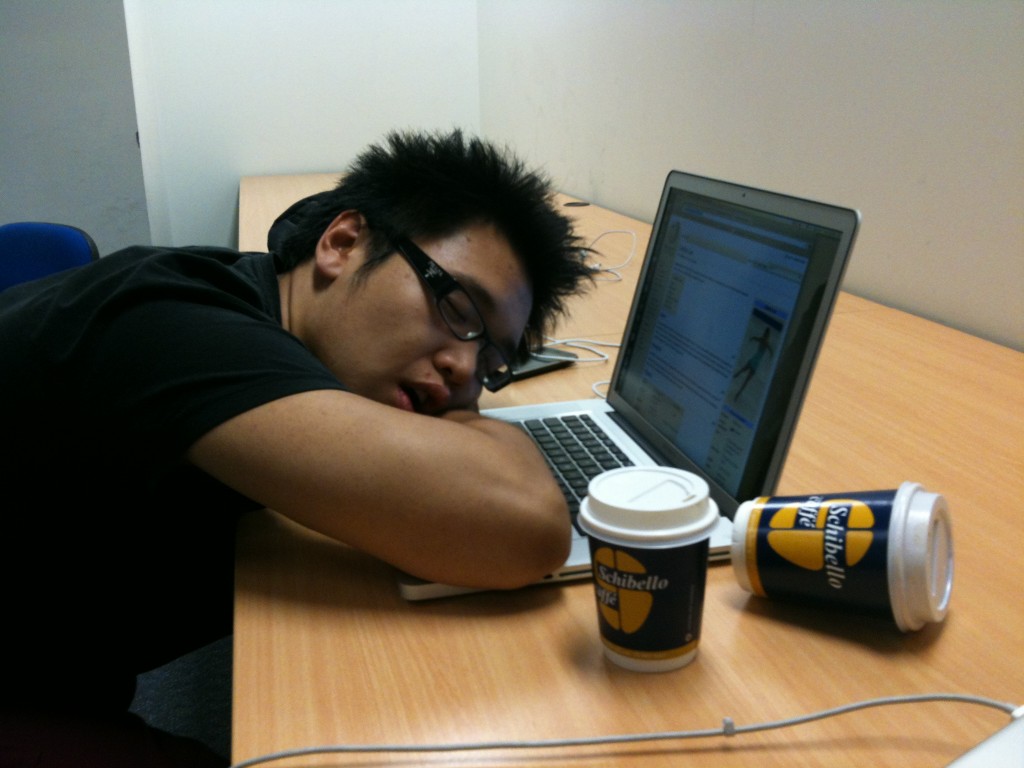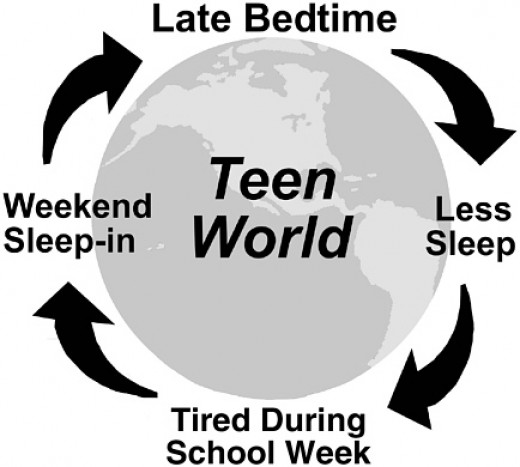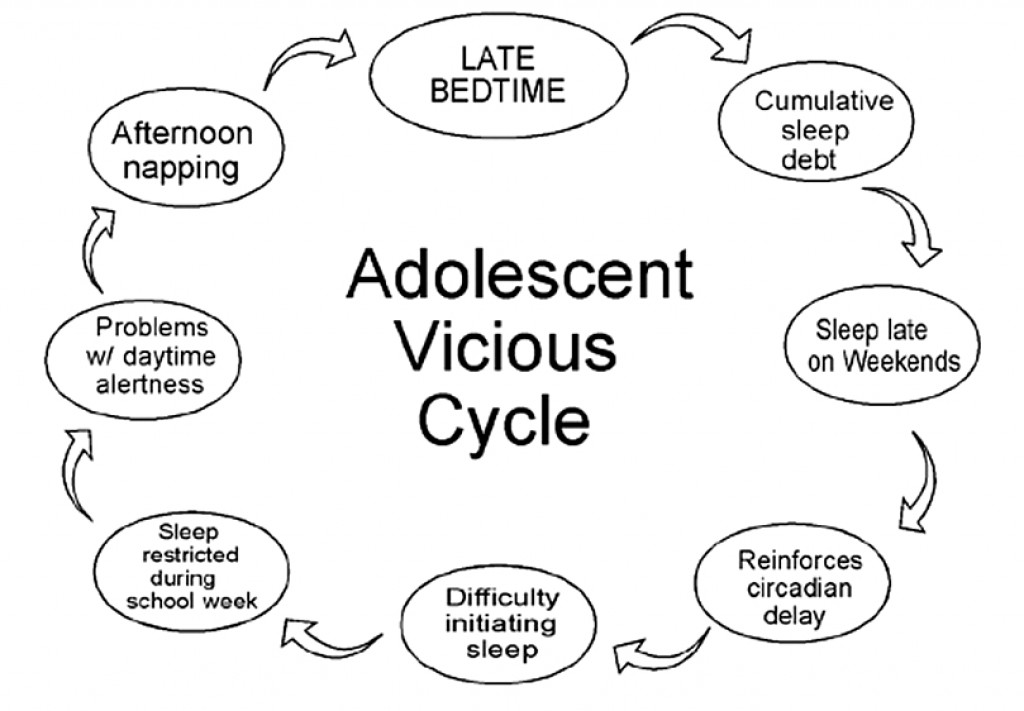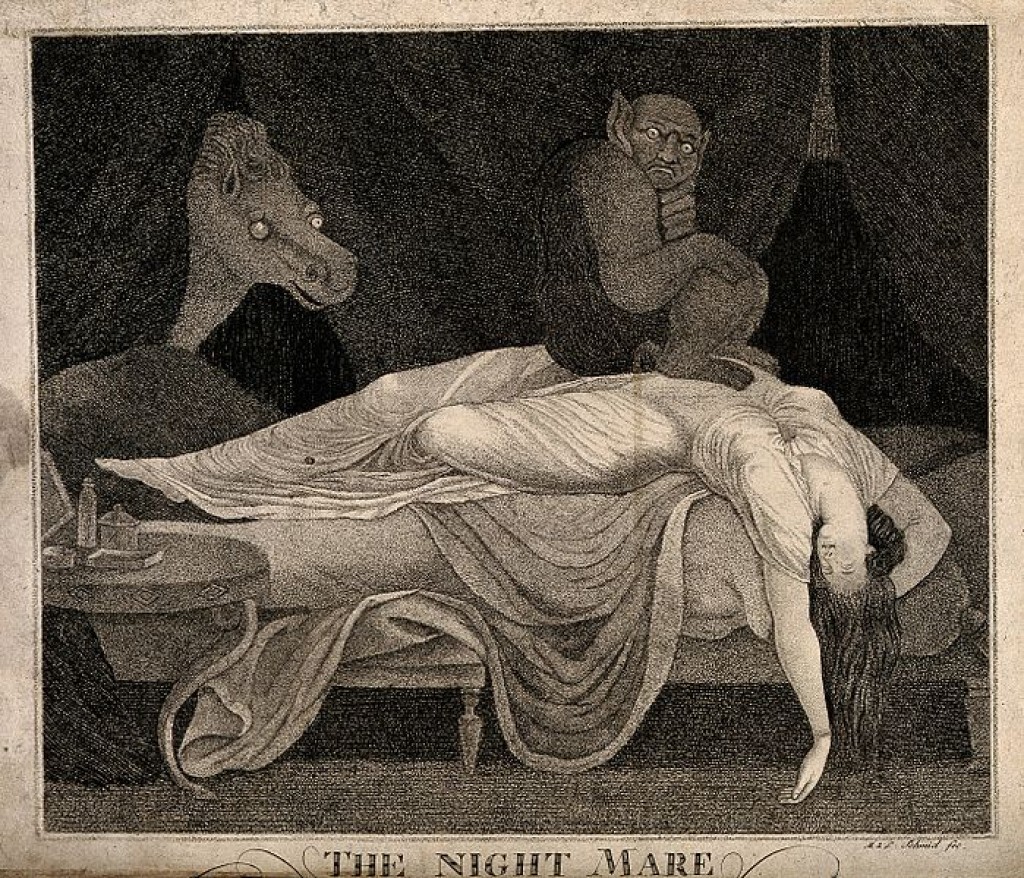Always Tired and Sleepy - Excessive Tiredness Causes and Symptoms
If you always feel tired and sleepy, even during the day, your fatigue may by due to bad habits, lifestyle issues, diet, poor sleeping patterns, emotional causes, stress or an underlying medical condition.
Too little or even too much sleep, depression, anxiety or grief can all cause fatigue and other tell-tale symptoms.
Medical conditions that can trigger fatigue symptoms may include anaemia, glandular fever, flu, sleep disorders such as restless leg syndrome or sleep apnoea, hypothyroidism, heart problems.
Continual tiredness may also be caused by what was previously referred to as 'chronic fatigue syndrome', but is now known as Myalgic Encephalopathy.
The good news is that most cases of excessive tiredness and feeling sleepy through the day can be fixed easily by changes in sleep patterns, diet, lifestyles and by addressing the causes of anxiety and emotional stress. This article outlines the causes, symptoms and remedies, and prevention strategies for always feeling tired and sleepy.
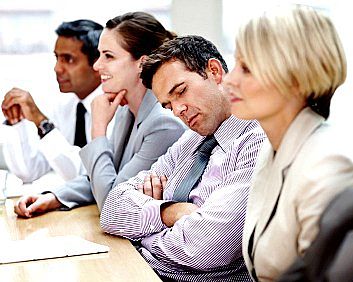
If tiredness continues over a long period of time without and obvious cause and cannot be relieved by simple strategies, it is time that you sought medical attention as it could be due to some form of illness. Tiredness can be a serious problem if:
- there is no obvious reason for it and the things you do does not relieve the symptoms
- it applies for or less continuously and has occurred for a long time
- it is having a profound and lasting effect on you life and relationships and it is really hampering what you want to do.
Tiredness is Relatively Common, Especially in Teenagers
Research has shown that about 20% of the people in the population regularly feel excessively tired and about 10% have fatigue that is prolonged and affects them most of the time. More women feel excessively tired than men. It varies with age and the very young and very old generally have less problems with excessive tiredness than teenagers and young adults. In many cases, particularly overweight teenagers who stay up late playing computer games and watching videos and may only get 5-6 hours of sleep a night, tiredness is obviously self- induced.
Tiredness Related Symptoms
|
Symptoms of Tiredness
|
|---|
|
Chronic tiredness or sleepiness
|
|
Headache
|
|
Dizziness
|
|
Sore or aching muscles
|
|
Muscle weakness
|
|
Slowed reflexes and responses
|
|
Impaired decision-making and judgment
|
|
Moodiness, such as irritability
|
|
Impaired hand-to-eye coordination
|
|
Appetite loss
|
|
Reduced immune system function
|
|
Blurry vision
|
|
Short-term memory problems
|
|
Poor concentration
|
|
Hallucinations
|
|
Reduced ability to pay attention
|
|
Inability to engage in life
|
|
Low motivation
|
|
Depression
|
|
Stress
|
|
Anxiety
|
Reasons Why You are Excessively Tired and Sleepy
Most of the time, fatigue and excessive tiredness can be linked to a combination of your habits, lifestyle aspects, sleeping patterns. Fatigue can be a normal reaction to heavy physical exertion, lack of sleep, worry and emotional stress, poor eating habits and drinking excessive alcohol or coffee. These occasional self-induced periods of fatigue that are self-induced and not generally a problem as there is an obvious remedy.
It is the prolonged and continuous fatigue that is the problem, when you cannot identify the cause or find relief by having extras sleep, good nutrition and having a beak from alcohol can caffeine.
Excessive tiredness can cause a series of indirect symptoms which you may not immediately associate with being tired. See the list opposite.
Often there are several things acting together that make you feel tired all the time and this makes it hard to fix.. For example, if you feel stressed or anxious, you will sleep poor and may be less inclined to exercise. All these things together make you feel tired.
Sometimes your failure to get to sleep can make you feel anxious and this exaggerates the problem. In this case changing your routine so you have proper exercise and dealing with the things that are troubling you will help you to sleep better.
There are several types of cause of excessive tiredness that will be discussed in turn: Physical, Psychological, Sleep Patterns and Lifestyle, Work and Relationships, Exercise and Diet. [The medical causes have been dealt with elsewhere (see your doctor)].
Physical Reasons for being Excessively Tired
Being overweight - puts a lot of strain on your body that has to work harder to do things. A recent research study involving 16,000 people showed a pronounced correlation between being over-weight and excessive tiredness. People with a body mass index over 32 showed twice the incidence of daytime tiredness.
Being unfit - Lack of exercise often makes it hard to sleep through the night. If you are physically tired you will sleep better provided you don't exercise just before going to bed (leave a 3-4 hour gap). Exercising vigorously within the three hours before going to bed, can actually make it harder to fall asleep and may leave you tired the next day. Morning exercise can improve mood and relieve stress. The type of vigorous exercise to use is an aerobic workout. That means exercise for about 20 minutes with an increase heart rate, the more vigorous the better. This can include exercises such as fast walk, bike, ski, jump rope, jog, swim, dance or playing tennis. Overdoing it can cause tiredness.
Having a Poorly Designed Routine - You need to balance what you do during the day to avoid stress and allow a wind down period before going to sleep. Thinking about what you do when and restructuring it with a better plan can help you relieve some of the stress, help you sleep better and prevent excessive tiredness.
Psychological Reasons for Being Excessively Tired
Worries and stress - Worrying causes - especially when you cannot find a solution to your problems and it disturbs your sleep. Everybody gets exhausted and stressed and when negative things happen to them such as accidents, illness or bereavements. Even positive things, like moving home or getting married, can also exhaust you and lead to tiredness.
Depression - is marked by prolonged and severe feelings of sadness, dejection, low self esteem and hopelessness. Many people experience chronic tiredness when they are depressed. Depression can make you feel tired all the time even if you are sleeping adequately. Sleeplessness compounds the problem and makes the situation much worse.
Anxiety and Stress – a person who is stressed or anxious all the time tends to keep their body in overdrive. The constant charge of adrenaline exhausts the body, and this causes fatigue. Such people often resort to caffeine or high-sugar fixes to keep them going. They may also resort to alcohol to slow them down. This can start a vicious cycle that can lead to chronic tiredness, especially if the person is not getting enough exercise.
Expecting too much of yourself - Everyone sets their own standards and goals in both their personal life and at work. While this is usually helpful as it provides a sense of direction it can cause anxiety if the standard is set too high and you are too hard on yourself. This can make you feel frustrated and cause excessive tiredness.
Family Reasons - Unresolved family relationship issues and parents worrying about their children can cause a constant drain on the emotions and lead to excessive tiredness. These issues need to be resolved. It’s no surprise that parents looking after babies and small children can get tired.
Sleep Patterns
It is an obvious question if you are fatigued: Are you getting enough quality sleep? There is an important distinction between fatigue and sleepiness. Fatigue is generally more a feeling of lethargic, listless and lack of energy and get up and go, and it is not necessarily relieved by a quick nap.
People suffering from insomnia are often fatigued, but are not sleepy. If you feel tired and you find that you can successfully take naps, you are probably not getting enough sleep at night. The standard formula of 8 hours sleep at night is quite unhelpful, as many people need less and some need a lot more. Women, on average, generally need an extra hour of sleep more than men. Oddly having too much sleep can cause tiredness during the day. Everyone need to work out a sleeping length and pattern that suits them. It is generally the changes in sleep patterns, both in terms of hours slept and when people go to bed that can upset your biological clock and cause tiredness.
Sleep Disturbances – You may be sleeping enough but the acuity of your sleep may be ruined by frequent disturbance. You may need to address the causes of these disturbances and some may be less obvious such as an uncomfortable sleeping environment, your bed or pillows or lack of ventilation. There are various smartphone apps that can monitor your sleep. If you find that your sleep is disturbed, fixing the cause will often help reduce tiredness during the day.
Sleep Apnea - This can rob people of a good night’s sleep without people being aware of it. If you are prone to this you need to get good advice on how to present and remedy the causes.
Insomnia - is an obvious cause of tiredness. Addressing the cause of insomnia will help reduce tiredness. Sometimes it is hard to break the cycle if you are consciously trying to get to sleep. Having a strategy to use relaxation techniques can help to relieve the frustration cause by insomnia. Sometimes its related to your body clock getting out of sync. Caffeine and mental stimulation can be part of a self-perpetuating cycle. Too much caffeine triggers a sleep disturbance, this mean that people feel tired and drink more caffeine to get over it. People who can't sleep may start reading a stimulating novel or playing a computer game and this may keep them awake.
Lifestyle Reasons for Being Excessively Tired
Lifestyle issues about work and financially problems can put people on a treadmill where there is no opportunity to rest and relax, both physically and mentally. This means that because of constant pressure people often on half-charged batteries and this affects their performance. Over-tired people should definitely try to do less a and have scheduled periods of relaxation and holidays to break the 24/7 rut.
Work Related Reasons for Being Excessively Tired
Some things in life are very difficult or impossible to change. One of the biggest of these are related to you work situation. So much of what happens is out of your control. People thrash-about at night trying to deal with it, leading to frustration and tiredness. Some of these issues are:
- Too much work
- Being bullied
- Not being recognised for the work you do
- Boss and Supervision Issues.
- Lack of control and frustration
- Shift work – can confuse the biological clock and this way degrade the quality of sleep
- Poor workplace practices – can add to a person’s level of fatigue. This may relate to the type of work or the environment in the workplace.
Work Related Stress – can be caused by a wide range of things such heavy workloads and deadlines, general job dissatisfaction, bullying, conflicts with bosses or colleagues, threats to job security.
Burnout – refers to devoting too much time and effort in one area of life while neglecting all others. So called ‘Workaholics’ devote too much time to their work to the detriment of their social life, family life and personal interests.
Diet Related Reasons for Excessive Tiredness
A poor diet is often the cause of chronic tiredness, that can be fixed relatively simply, provided people are aware of the problem and what they need to fix it. Studies have shown that iron is a key ingredient to maintain energy levels. He says red meat, but also green leafy vegetables and whole grains are rich in iron and people should be aware of the levels in their diet, particularly vegans.
Maintaining a good balanced diet is the key to avoiding fatigue. Everyone is aware of how energy levels suddenly plunge after a sugar hit and how eating a stodgy meal full of fat can make you tired and lethargic. These is a lot of information on diet and wellbeing.
Coffee, Tea and Caffeine Laden Energy Drinks - Caffeine is an obvious cause of tiredness due to not getting enough sleep. There is also a down-side as the stimulant effects wear off. You can 'buy' some extra energy but you have to pay it back sometime. Despite taking more and more, eventually excessive use will lead to excessive tiredness.
Alcohol - is a known depressant drug that act to slow down the nervous system. It disturbs normal sleep patterns. If you drink alcohol in the evening, you will go to sleep, but you tend to wake you up in the middle of the night and have very disturbed and disrupted sleep. Regular over-consumption of alcohol can make you depressed, affect your sleep and cause excessive tiredness.
1. Tips for Improving your Sleep Patterns
- Try to gradually reduce the time you spend 'napping' during the day.
- Make sure your bedroom is comfortable: not too hot, not too cold, and not too noisy.
- Go to bed and get up in the morning at the same time every day, no matter how you feel.
- Don't eat or drink a lot late at night. Try to have your evening meal early rather than late.
- Pick a way to relax before going to bed - such as reading, listening to music or using a relaxation technique.
- Have a long hot bath before bed. This should be as hot as you can bear, without scalding you, and last a good twenty minutes.
- If you can't sleep, don't lie there worrying about it: get up, leave the bedroom and do something you find relaxing. When you feel tired enough, go back to bed.
- If something is troubling you, and there is nothing you can do about it there and then, try writing it down. Tell yourself you will deal with it in the morning, and then go to bed.
- If none of this works, go and see your doctor.
2. Get Regular Exercise
Regular exercise will make you feel less tired and more energetic. The tiredness from physical exertion is a good form of tiredness that will help you sleep for longer and more soundly. Exercise also boosts you mood and can relieve depression. Exercise is also a wonderful distraction, which can mean that you switch-off from your troubles anxieties and stress, so that you can truly relax - both physically and mentally..
3. Cut down on the caffeine
Reduce the amount of coffee, tea and energy drinks you are consuming, especially late in the afternoon and evening. Chocolate can also be a problem. Many people find that this can relieve their tiredness
4. Weight Control
Reducing your weight will often boost you energy levels, both physically and emotionally as you will feel better about yourself.
5. Develop a Better Daily and Weekly
Being better organised and efficient can increase you productivity. Build exercise and relaxation periods into your schedule and stick to them. If you are not tired all the time you will perform better and have more time to relax.6. Develop Realistic Expectations
Be kind to yourself. If you have been tired for a long time, don't expect to be back to your normal self overnight. Set goals for yourself that are realistic and achievable with defined stages. Don't expect unrealistic progress and make change to your schedule if you fall behind. All progress is good, however small or unimportant it may seem at the time.Related Articles about Sleep
=> Why Adequate Sleep is Important for Weight Loss
=> Teenage Obesity, Teen Weight Problems Linked to Late Sleeping Patterns
=> Does Lack of Sleep Stop Weight Loss Progress When Dieting?
=> Teenage Sleep Requirements, Lack of Sleep, Ensuring Teens Get Enough Sleep
=> Co-Sleeping with Baby - New Warnings on Risks, Dangers and Precautions Required
=> Better-Sleeping-Tips-and-Good-Sleep-Guide That Works
=> Sleep Apnea Treatments and Prevention Without Masks
=> Attention Deficit Hyperactivity Disorder ADHD Linked with Sleep Apnea
=> How Much Sleep Do You Really Need - Age, Weekly Cycle and Personal Needs Guide
=> Trouble Sleeping - Blame it on the Moon Phase
=> Q&A: Why Do Humans Need to Sleep and Animals Too?
=> Sleeping on Aeroplanes - Tips for Decent Sleeps, Naps on Long Flights
